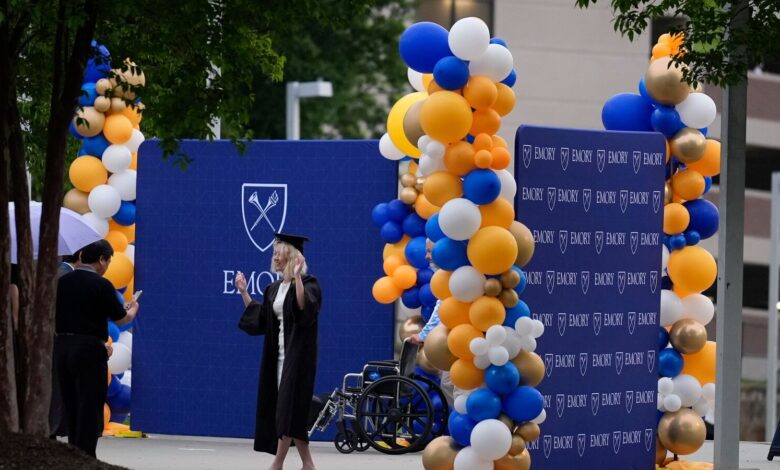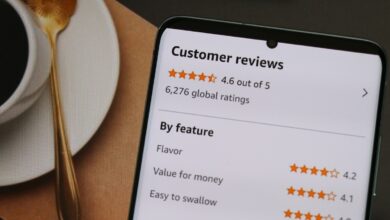The student who was suspended for a prizewinning AI tool fights back

College student Benjamin Craver was flying high. It was March 2023 and the artificial intelligence tool he helped launch won a $10,000 first-place prize at his university’s startup competition.
College student Benjamin Craver was flying high. It was March 2023 and the artificial intelligence tool he helped launch won a $10,000 first-place prize at his university’s startup competition.
Six months later, Emory University suspended him and his co-founder for that same AI tool.
Premium benefits
35+ Premium articles every day
Specially curated Newsletters every day
Access to 15+ Print edition articles every day
Subscriber only webinar by specialist journalists
E Paper, Archives, select The Wall Street Journal & The Economist articles
Access to Subscriber only specials : Infographics I Podcasts
Unlock 35+ well researched
premium articles every day
Access to global insights with
100+ exclusive articles from
international publications
5+ subscriber only newsletters
specially curated by the experts
Free access to e-paper and
WhatsApp updates
Six months later, Emory University suspended him and his co-founder for that same AI tool.
“I was pretty shocked,” Craver said in an interview with The Wall Street Journal. “A suspension goes on your permanent record forever, basically. I would always have that mark of academic dishonesty, which is upsetting.”
The AI tool, called Eightball, offers a way to help students study, Craver said. Users upload classroom slides or notes, and the tool uses that information to create flashcards and practice test questions.
Craver has filed a lawsuit against Emory in the U.S. District Court in Atlanta, hoping it will get the university to reverse its decision and wipe the suspension from his record. The 20-year-old, who just finished his junior year, said his parents are funding the lawsuit.
An Emory spokeswoman declined to comment, saying the university wouldn’t comment on pending litigation. In court documents, the school has said Eightball could be used to spread class information outside the school and help Emory students cheat.
A report issued by Emory’s honor council, which investigates academic misconduct, said the $10,000 prize doesn’t mean Emory supported Eightball. It’s not up to the university to ensure that the tool is developed ethically, said the report, which was disclosed in court documents.
Schools and universities have grappled with how students could use AI without cheating since ChatGPT launched in late 2022. Some schools have embraced AI chat bots, allowing students to use it as a first step to writing papers or finding information. Others have suspended students for cheating.
How it started
Craver, who is studying history and economics, said he got involved with the AI tool in the winter of 2022. A tech-savvy friend was “messing around and building stuff,” he said, when he asked Craver to join him to enter the idea in a startup contest at Emory. The two worked together to create a slideshow and an early version of the tool to pitch contest judges.
Craver declined to name the friend, who was also suspended, for privacy reasons. The friend isn’t named in the lawsuit. A third student who was with Eightball at its start left the company in the summer and wasn’t suspended, Craver said.
Eightball is different than ChatGPT, Craver said, because instead of pulling information from online sources, Eightball specifically uses class materials that students upload to create flashcards, test questions or build a study guide. It doesn’t grab other material from the internet.
Craver said his friend built the code for Eightball, while Craver was entrusted to get the word out by creating fliers and social-media posts to attract users. They picked AI because it’s up-and-coming, said Craver.
“It’s definitely going to affect the world in a huge way, much like the internet did,” he said. “We wanted to focus on that and try to harness it for something positive.”
They worked to have a test version ready by March 2023 to enter Eightball in Emory’s annual Pitch the Summit event held by the university’s business school, where students pitch their startup ideas. Eightball won first place, beating out six other ideas.
“We did not expect that at all,” said Craver, who says winning the $10,000 prize was a highlight of his time at Emory. “It was really cool.”
They spent the prize money on making Eightball a reality, Craver said. Craver said he went back home to Lexington, Mass., last summer and worked on Eightball. For advice, Craver said he talked to alumni suggested by a dean at Emory.
Vanessa Youshaei, an Emory alumna who graduated in 2013 and who judged the pitch contest, said in court documents supporting Craver that she and the other judges were impressed by Eightball, and issues of cheating or using the school’s software didn’t come up.
“I for one wish that Eightball had been available when I was a student,” Youshaei said in her letter of support, dated May 20.
‘A little freaked out’
When Craver and his friend went back to school in the fall, the two of them lived together in an apartment. They would work on Eightball together after classes. In November, he was in that apartment when he received an email from the school that said he was at risk of being suspended. Craver said he received no warning from the school before.
“I was upset and a little freaked out,” Craver said about reading the letter on his laptop. “I just laid in bed for a while that day.”
Rob Nelson, who teaches a history of higher education class at University of Pennsylvania and blogs about AI in education, said most universities aren’t issuing new policies or guidance on how to use AI, but relying on teachers to be clear with students about what’s allowed and what’s not.
Emory’s code of conduct says students can use AI, as long as it is cited in their work. Students should ask professors on the appropriate use of AI if they’re “unclear about the expectations,” the code of conduct says.
Craver said he and his friend shut Eightball down at Emory several days after the letter. The tool had been live for a few weeks and didn’t have many users, Craver said, though he doesn’t know the exact number. “I don’t think it reached 100 at all,” he said. “It was a very small handful.”
Emory’s honor council held a hearing in January. In Emory’s hearing report, which was included in court documents, the school said it was against its policy for Eightball to be connected to its learning software, where professors post class notes.
Craver said Eightball was designed to be connected to the learning software, and no one disapproved of it when it was pitched.
Craver appealed the honor council’s decision in February. It was denied by the council a month later.
His suspension means he can’t take classes this summer or fall. Craver said he also wouldn’t be able to do his final thesis to graduate, or participate in fall career fairs. He’ll have to reapply to the school in the spring,
His lawsuit asks Emory to reverse its decision, let him come to school this fall, and to pay damages of more than $75,000.
He’s not abandoning Eightball. He and his friend are working on getting it used by students at other universities.
“My number one goal is to return to school and be able to finish my education,” he said. “If I can do that and Eightball, then for sure, that’d be really cool.”
Write to Joseph Pisani at joseph.pisani@wsj.com



